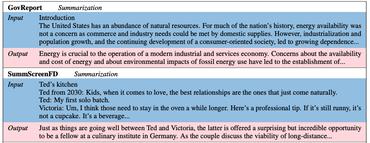Search Results for author: Haotian Bai
Found 8 papers, 4 papers with code
Hi-Map: Hierarchical Factorized Radiance Field for High-Fidelity Monocular Dense Mapping
no code implementations • 6 Jan 2024 • Tongyan Hua, Haotian Bai, Zidong Cao, Ming Liu, DaCheng Tao, Lin Wang
In this paper, we introduce Hi-Map, a novel monocular dense mapping approach based on Neural Radiance Field (NeRF).
Dynamic PlenOctree for Adaptive Sampling Refinement in Explicit NeRF
no code implementations • ICCV 2023 • Haotian Bai, Yiqi Lin, Yize Chen, Lin Wang
The explicit neural radiance field (NeRF) has gained considerable interest for its efficient training and fast inference capabilities, making it a promising direction such as virtual reality and gaming.
FMapping: Factorized Efficient Neural Field Mapping for Real-Time Dense RGB SLAM
no code implementations • 1 Jun 2023 • Tongyan Hua, Haotian Bai, Zidong Cao, Lin Wang
We then propose the sliding window sampler to reduce uncertainty by incorporating coherent geometric cues from observed frames during map initialization to enhance convergence.
CompoNeRF: Text-guided Multi-object Compositional NeRF with Editable 3D Scene Layout
no code implementations • 24 Mar 2023 • Haotian Bai, Yuanhuiyi Lyu, Lutao Jiang, Sijia Li, Haonan Lu, Xiaodong Lin, Lin Wang
To tackle the issue of 'guidance collapse' and enhance consistency, we propose a novel framework, dubbed CompoNeRF, by integrating an editable 3D scene layout with object specific and scene-wide guidance mechanisms.
Patch-Mix Transformer for Unsupervised Domain Adaptation: A Game Perspective
1 code implementation • CVPR 2023 • Jinjing Zhu, Haotian Bai, Lin Wang
We solve this problem from a game theory's perspective with the proposed model dubbed as PMTrans, which bridges source and target domains with an intermediate domain.
 Ranked #1 on
Unsupervised Domain Adaptation
on Office-Home
Ranked #1 on
Unsupervised Domain Adaptation
on Office-Home
Weakly Supervised Object Localization via Transformer with Implicit Spatial Calibration
2 code implementations • 21 Jul 2022 • Haotian Bai, Ruimao Zhang, Jiong Wang, Xiang Wan
Weakly Supervised Object Localization (WSOL), which aims to localize objects by only using image-level labels, has attracted much attention because of its low annotation cost in real applications.
 Ranked #2 on
Weakly-Supervised Object Localization
on ImageNet
Ranked #2 on
Weakly-Supervised Object Localization
on ImageNet
AMOS: A Large-Scale Abdominal Multi-Organ Benchmark for Versatile Medical Image Segmentation
1 code implementation • 16 Jun 2022 • Yuanfeng Ji, Haotian Bai, Jie Yang, Chongjian Ge, Ye Zhu, Ruimao Zhang, Zhen Li, Lingyan Zhang, Wanling Ma, Xiang Wan, Ping Luo
Constraint by the high cost of collecting and labeling 3D medical data, most of the deep learning models to date are driven by datasets with a limited number of organs of interest or samples, which still limits the power of modern deep models and makes it difficult to provide a fully comprehensive and fair estimate of various methods.
Deep Learning for Omnidirectional Vision: A Survey and New Perspectives
1 code implementation • 21 May 2022 • Hao Ai, Zidong Cao, Jinjing Zhu, Haotian Bai, Yucheng Chen, Lin Wang
Omnidirectional image (ODI) data is captured with a 360x180 field-of-view, which is much wider than the pinhole cameras and contains richer spatial information than the conventional planar images.




